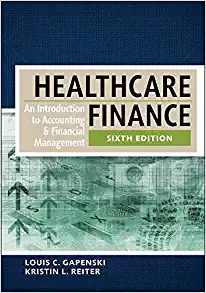Question
What happens when you hold a bond until its maturity date? A. You receive the face value of the bond B. You receive whatever you
What happens when you hold a bond until its maturity date?
A. You receive the face value of the bond
B. You receive whatever you initially paid for the bond
C. You receive the face value of the bond and any interest that has accrued since the last interest payment
D. You receive whatever you initially paid for the bond plus any interest that has accrued since the last interest payment
What is a Mutual Fund?
A. A pool of securities you can buy as an investment
B. A fund used by companies to raise capital
C. A fund that follows an index you can buy like a stock
D. A type of high-interest bank account
Which is a characteristic of open-ended mutual funds?
A. Shares trade throughout the day
B. There is a limit to the size of the fund
C. Investors typically hold fractions of shares
D. They are tied to a stock index and not actively managed
Which is one major advantage of Mutual Funds?
A. They have very low fees
B. You have a fund manager so you do not need to constantly monitor your investments
C. You can pick the companies you invest in
D. You get more dividends than if you held the underlying stock
What is a disadvantage of Mutual Funds?
A. It is hard to diversify your portfolio using mutual funds
B. It costs a lot more in commissions than buying individual stocks
C. Mutual funds can have maintenance fees regardless of fund performance
D. Mutual funds are not actively managed by a professional
What is one difference between Mutual Funds and ETFs?
A. Mutual Funds can hold more than just stocks
B. Mutual Funds make it easier to diversify
C. Mutual Funds are always easier for taxes
D. Mutual Funds cannot be day-traded
How do you buy ETFs?
A. Like a mutual fund, trading at the end of the day
B. Like a stock, with the price constantly updating
C. Like a bond, you can buy and sell at any time but it eventually expires
D. You can only buy ETFs at their Initial Public Offering (IPO)
What is an Index ETF?
A. An ETF that tracks a stock index, like the S&P 500
B. An ETF that is based on a commodity, like gold
C. A place where ETFs are listed
D. ETFs that are all created by the same company
Who would be the most likely to buy an Inverse ETF?
A. An investor who thinks Apple stock will go down in value
B. An investor who wants to buy gold
C. An investor who wants double or triple the daily return of an index
D. An investor who normally is not able to short-sell in their portfolio
Who would be the least likely to buy a Leveraged ETF?
A. An investor who thinks a big price spike is coming soon
B. An investor who thinks the underlying index will slowly go up over time
C. An investor who wants to invest in oil
D. An investor who day trades
Which of these is different between ETFs and Mutual Funds?
A. ETFs hold a wide basket of stocks instead of just a few
B. ETFs are much older than mutual funds
C. ETFs usually have lower fees than mutual funds
D. ETFs will never pay out the dividends of underlying stocks, but mutual funds will
What is one advantage cash has over all other forms of stored payment?
A. It is easier to make large payments with cash
B. Cash is more secure and harder to steal than other types
C. Cash is anonymous, since there is no paper trail
D. Every business takes cash for all transactions
Which of these is not a protection you get with a debit card?
A. They are much harder to fake than checks
B. They are much harder to steal or lose than cash
C. Debit cards are impossible to counterfeit
D. You can use a PIN that only you know as a password
Where will it be cheapest to cash a check?
A. At a dedicated check-cashing service
B. At the bank that issued the check
C. At your own bank where you have a checking account
D. All of these would cost the same
What is the biggest advantage of making financial goals?
A. It helps you keep track of your assets
B. It prevents you from spending too much
C. It gives an extra incentive to save more and build wealth faster
D. Financial goals are most useful for disorganized people
How do non-monetary assets contribute to net worth?
A. They gain value or pay dividends/rent
B. You can sell them, so they have value
C. Both A and B
D. They don't count, only your liquid assets are part of your wealth
Which of these is the most effective way to build wealth?
A. Evaluating your spending plan to increase how much you can save each month
B. Investing in stocks that pay lots of dividends
C. Setting high financial goals, even if you can't reach them
D. Having lots of liquid assets
Step by Step Solution
There are 3 Steps involved in it
Step: 1

Get Instant Access to Expert-Tailored Solutions
See step-by-step solutions with expert insights and AI powered tools for academic success
Step: 2

Step: 3

Ace Your Homework with AI
Get the answers you need in no time with our AI-driven, step-by-step assistance
Get Started


